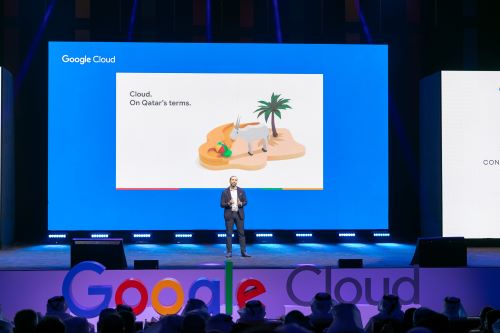OpenAI launches NextGenAI consortium to boost research and education with AI

With $50 million commitment
OpenAI has launched NextGenAI, a pioneering consortium bringing together 15 leading research institutions across the United States and the United Kingdom to accelerate research breakthroughs and transform education through the power of artificial intelligence (AI).
The initiative marks a significant step in OpenAI’s commitment to shaping the future of AI, empowering the next generation of AI leaders, and addressing some of the world’s most pressing challenges.
The consortium, comprising world-renowned institutions such as Harvard University, the University of Oxford, and MIT, will receive $50 million in research grants, computing funding, and API access from OpenAI to support students, educators, and researchers at the forefront of knowledge discovery.
With the rapid advancements in AI technology, the initiative aims to equip educational institutions with the tools to harness AI effectively and responsibly, creating a future where AI propels research forward and transforms how we learn and teach.
Global partnership
At the heart of NextGenAI is a collaboration between 15 prestigious institutions, including Caltech, Duke University, Texas A&M University, and Ohio State University, as well as key academic and medical centres like Boston Children’s Hospital and Boston Public Library. These institutions are united in their commitment to applying AI to address high-impact global challenges across various sectors, including healthcare, education, agriculture, and energy.
“AI has the potential to drive significant progress in research and education,” said Brad Lightcap, Chief Operating Officer at OpenAI. “However, its true power can only be unlocked when people have access to the right tools and resources. NextGenAI is designed to ensure that students, educators, and researchers have what they need to shape the future of AI in a way that benefits everyone.”
The consortium’s primary aim is to catalyse progress at an unprecedented pace by bringing together institutions and organisations that, individually, could not achieve such rapid advancement. Through a shared commitment to pushing the boundaries of AI, NextGenAI will fuel a new generation of scientific breakthroughs while ensuring that the next generation of students is equipped to lead the future of AI innovation.
AI-driven advancements
Each of the participating institutions is already engaged in groundbreaking AI-driven research that has the potential to transform industries and improve lives worldwide. The Ohio State University, for instance, is leveraging AI to advance fields such as digital health, energy, agriculture, and mobility while developing new educational models powered by AI.
According to Peter J. Mohler, Executive Vice President for Research, Innovation, and Knowledge at Ohio State, “Ohio State is at the forefront of a multidisciplinary approach to AI’s benefits. By joining OpenAI’s partnership, we can drive even more groundbreaking discoveries in medicine, manufacturing, and computing.”
Meanwhile, at Harvard University, researchers are utilising OpenAI’s tools to address pressing healthcare challenges, including reducing the time it takes to diagnose rare diseases, such as orphan diseases that often remain undiagnosed for years. The collaboration with Boston Children’s Hospital focuses on enhancing AI’s alignment with human values, particularly in medical decision-making, to make AI an ethical partner in healthcare.
Duke University is also at the cutting edge of AI, particularly in metascience. Researchers are utilising AI to identify the scientific fields where the technology can have the most significant impact. This allows researchers to focus on areas with the most critical breakthrough potential.
Next generation of AI leaders
NextGenAI’s reach extends beyond just researchers and scientists to students and educators. By providing hands-on experience with AI tools and resources, the initiative is helping equip the next generation of leaders with the skills and knowledge they need to thrive in a world increasingly dominated by AI technology.
Texas A&M University, for instance, is using NextGenAI to support its Generative AI Literacy Initiative, which aims to equip students with the necessary tools and training to use AI responsibly in academic settings.
According to Dr Robert H. Bishop, Vice Chancellor and Dean of the College of Engineering at Texas A&M, “This collaboration with OpenAI will allow us to empower our students, researchers, and the broader academic community to develop cutting-edge knowledge and skills in the rapidly evolving field of generative artificial intelligence.”
At MIT, students and faculty will benefit from the provision of OpenAI’s API and compute funding, enabling them to train and fine-tune their AI models while developing new applications that could revolutionise industries. Similarly, Howard University is using AI to reimagine its curriculum and teaching methods, ensuring that students learn about AI and gain valuable hands-on experience, preparing them to become future leaders in the field.
Redefining AI role
NextGenAI also envisions a future in which AI becomes a core part of university operations and library services. At the University of Oxford, AI is being used to digitise rare texts at the Bodleian Library, making centuries-old knowledge accessible and searchable to scholars worldwide.
Anne Trefethen, Pro-Vice-Chancellor for Digital at Oxford, expressed excitement about the partnership: “This new collaboration marks an exciting step forward, offering fresh opportunities to enrich our research, expand our AI capabilities, and foster skill development. By working together, we can advance the frontiers of AI, understand its impact on education, and unlock its vast potential to benefit our university community and beyond.”
Similarly, the University of Mississippi is exploring how AI can enhance education, research, and service, focusing on developing AI-driven solutions that benefit both the academic community and the broader public. Boston Public Library, the United States’ first extensive free municipal public library, is also digitising public domain materials using AI to make information more accessible to its diverse patrons.
Academia and industry
NextGenAI advances research and education and plays a vital role in strengthening the relationship between academia and industry. By bridging this gap, NextGenAI ensures that the groundbreaking work done in academic institutions has a direct and lasting impact on real-world challenges.
OpenAI’s Brad Lightcap emphasised the importance of continued collaboration: “The field of AI would not be where it is today without decades of work in the academic community. NextGenAI will accelerate research progress and catalyse a new generation of institutions fully equipped to harness the transformative power of AI.”
This initiative complements OpenAI’s broader commitment to education, which was underscored by the launch of ChatGPT Edu in May 2024, which granted university-wide access to ChatGPT. NextGenAI, however, builds on this foundation by offering additional resources, including OpenAI’s APIs and funding, to foster critical innovation in research and education.
Image: NextGenAI also envisions a future in which AI becomes a core part of university operations and library services. Credit: Abby Chung













